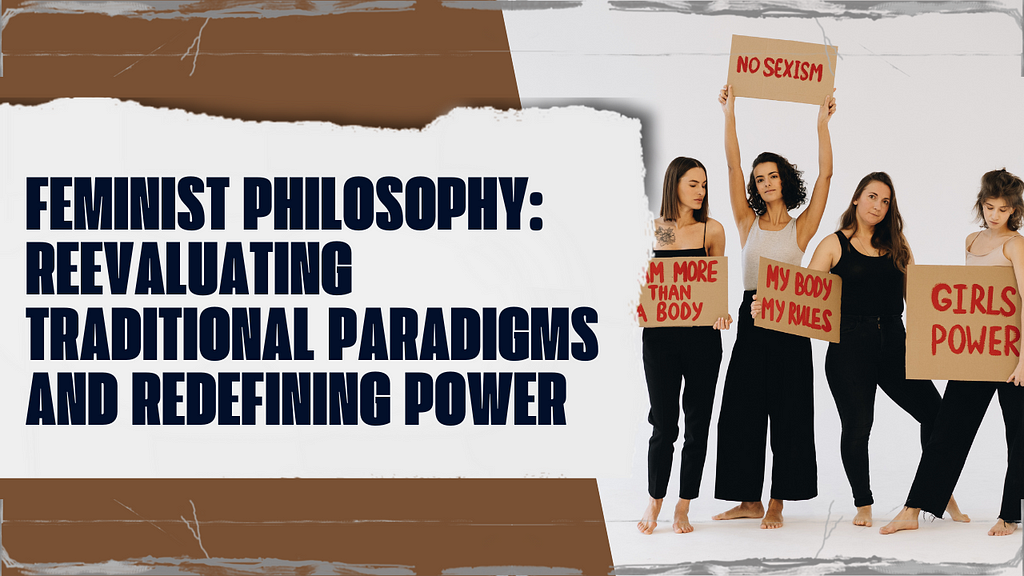
Feminist philosophy stands as a transformative force challenging traditional paradigms and reshaping our understanding of power dynamics. In recent decades, feminist thinkers have delved into diverse areas, from ethics to political theory, offering fresh perspectives that dismantle long-standing norms and promote equality. This article explores the key tenets of feminist philosophy, highlighting its impact on society and the ongoing evolution of gender dynamics.
I. Deconstructing Patriarchy
Feminist philosophy begins with a critical examination of patriarchy, the social system that historically granted men dominance over women. By deconstructing the power structures embedded in patriarchy, feminists aim to unveil the subtle ways in which gender-based norms shape societal expectations. For example, the traditional division of labor, where men are often associated with professional roles and women with caregiving, is scrutinized. Feminist thinkers argue that breaking these stereotypes is essential for achieving true gender equality.
II. Intersectionality: Recognizing Multiple Identities
One of the foundational principles of feminist philosophy is intersectionality. Coined by Kimberlé Crenshaw, intersectionality emphasizes the interconnected nature of social categories such as gender, race, class, and sexuality. This approach recognizes that individuals experience multiple forms of oppression or privilege simultaneously. For instance, a woman of color may face challenges unique to both her gender and racial identity, highlighting the need for a more nuanced understanding of social inequalities.
III. Ethics of Care: Redefining Morality
Feminist philosophy has also contributed significantly to ethics by challenging traditional notions of morality based on abstract principles. The ethics of care, advocated by thinkers like Carol Gilligan, emphasizes the importance of relationships and empathy in moral decision-making. This approach contrasts with traditional moral frameworks that often prioritize autonomy and individual rights. By shifting the focus to interconnectedness and empathy, feminists argue for a more inclusive and compassionate ethical system.
IV. Political Philosophy: Expanding Notions of Power
In the realm of political philosophy, feminists question the conventional understanding of power. Traditionally associated with dominance and control, power is redefined to encompass collaborative and cooperative efforts. The concept of “power with” rather than “power over” underscores the idea that true empowerment lies in collective action. Grassroots movements led by women advocating for social change exemplify this shift in the dynamics of power.
V. Feminist Epistemology: Broadening Knowledge Production
Feminist epistemology challenges traditional ways of producing knowledge, questioning the objectivity of dominant narratives. It highlights the importance of diverse voices and experiences in shaping our understanding of the world. For instance, feminist scholars argue that acknowledging the perspectives of marginalized groups is crucial for a more comprehensive and accurate representation of reality.
Feminist philosophy is a dynamic and evolving field that continues to reshape our perceptions of power, morality, and societal structures. By deconstructing patriarchal norms, embracing intersectionality, redefining ethics, expanding notions of political power, and broadening knowledge production, feminists have fostered a more inclusive and equitable discourse. As society continues to grapple with issues of gender inequality, the insights provided by feminist philosophy serve as a guiding force toward a more just and egalitarian future.
Feminist Philosophy: Reevaluating Traditional Paradigms and Redefining Power was originally published in EpicurusEcho on Medium, where people are continuing the conversation by highlighting and responding to this story.